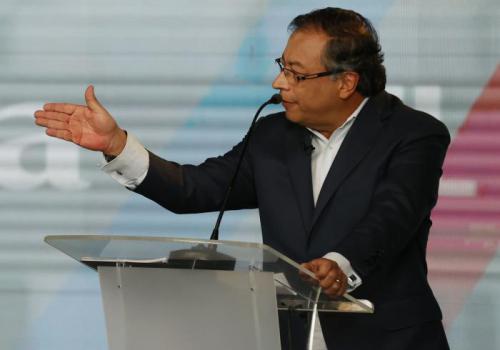The Colombian government has moved to underline the importance of hydrocarbons to the trade balance in its latest effort to ease concerns about the local sector's future. Amid fears that oil and gas companies might seek to withdraw plans for future investments, finance minister José Antonio Ocampo said oil exports "have to continue." "The question is, with the existing contracts, how much is guaranteed [for oil exploration and production] and if it is possible to diversify and have more agricultural, industrial or service exports that compensate for the reduction in oil," Ocampo said. Earlier, President Gustavo Petro (pictured) said on Twitter that existing oil and gas exploration contracts remained intact, insisting "there is no ban." The former Bogotá mayor has pledged to stop issuing E&P licenses and proposed new taxes on producers since assuming office on August 7.
The measures – designed to wean the country off fossil fuels and accelerate a shift toward renewable energy – has led to forecasts that Colombia could be forced to import gas by 2026 and oil by 2028. Some analysts cite the government's energy policy as a key reason for an outflow of foreign capital that has contributed to a sharp devaluation of the Colombian peso, which this week hit an all-time high of 4,900 against the US dollar. The mines and energy ministry also released a statement on Thursday in which it ensured the country's 330 exploration and production contracts would be respected. "We have major gas resources in the Colombian Caribbean which potentially could become reserves and significantly increase the country's horizon of self-sufficiency,” energy minister Irene Vélez said in the statement.
